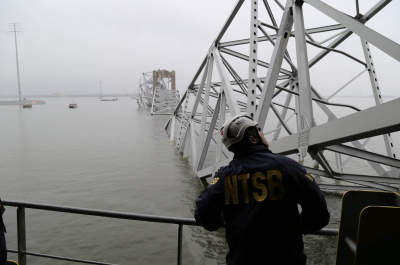Unusual winter flooding patterns along the Mississippi River and its tributaries have the potential to considerably affect grain exports, the U.S. Department of Agriculture said Thursday.
While high water is expected in the spring as a consequence of rain combined with melting snow, the river disruptions resulting from December’s heavy rains come at a busier time for grain shipments, especially soybeans.
Barge traffic was significantly reduced during the week ending Jan. 2, with grain tonnages of 91,000 tons during that time, well below the previous four-week average mark of 575,000 tons per week. During the same time period, 813 grain barges were unloaded in the New Orleans area, compared with the previous four-week average of 854.
The Mississippi River near St. Louis was closed from Dec. 28 to Jan. 3, with a stretch farther downriver near Cape Girardeau, Mo., closed through Jan. 5. Portions of the Illinois River have been closed since Dec. 28 and remained closed as of Jan. 6. The Arkansas River, a small contributor to Mississippi River grain traffic, has been closed since Dec. 26.
The USDA said that typically about 74% of the annual soybean barge deliveries to the Louisiana Gulf export elevators occur during the first half of the crop year (September through February), while corn deliveries are generally steadier throughout the year.
On average, barge deliveries to the Louisiana Gulf provided 43% of all U.S. corn exports and 42% of all soybean exports during the 2008 to 2012 crop years, the USDA said.
Cresting in Lower Mississippi River locations, including around New Orleans, will become critical for navigation in the coming days, and significant flooding is expected to continue on the Mississippi, Ohio, and Arkansas rivers for the foreseeable future, with predicted precipitation by the end of the week possibly prolonging the high water.
View more details in the USDA Grain Transportation Report for Jan. 7.




